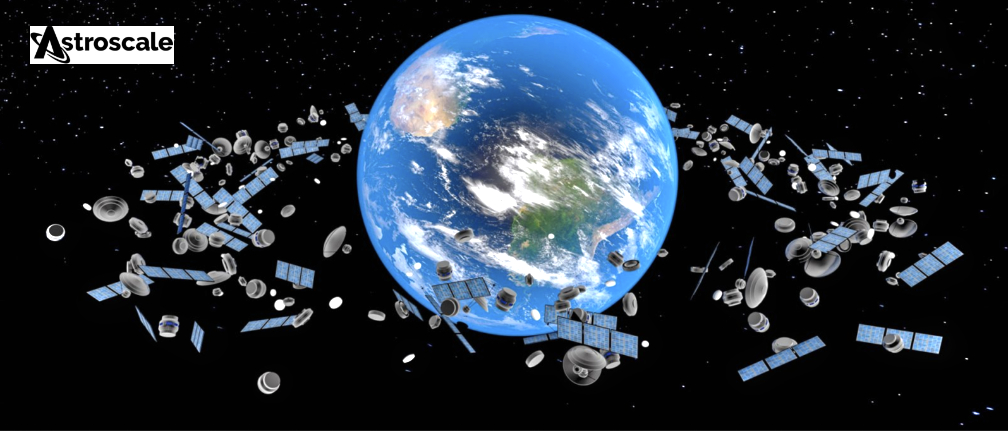
Astroscale Ltd. has successfully bid for the UK Space Agency’s Active Debris Removal (ADR) Refuelling feasibility study.

This £2 million UKSA study program marks a significant milestone in the mission to transform the satellite industry and make space operations more sustainable. The study is focused on the refueling of the UK’s first Active Debris Removal (ADR) mission, for which Astroscale UK is also under contract to develop its COSMIC servicer spacecraft, in addition to a second commercial client to be determined, not only addressing the technological barriers in this ambitious mission, but also continuing to grow the in-orbit economy.
For its COSMIC ADR mission, Astroscale UK is teaming up with more than 10 UK-based partner companies, contributing to further job creation and economic growth across the country, supporting the UK government’s commitment to leveling up. As a global entity dedicated to IOS across all orbital paths, the inclusion of refueling capabilities provides Astroscale with the opportunity to showcase its comprehensive range of services and expertise.
For this new project Astroscale UK has assembled an industry-leading team to carry out the study and, in turn, will execute the refueling mission by strategically harnessing the UK supply chain’s existing relationships from Astroscale’s program, ELSA-M, and from the COSMIC program to maximize benefits for UK industrial entities engaged in ADR. Key collaborators include:
- Thales Alenia Space UK: Renowned for their global expertise in space propulsion, Thales Alenia Space UK will spearhead the design of the servicer refuelling subsystem.
- Airbus Defence & Space UK: A globally recognised leader in managing complex space missions, Airbus is assessing advanced in-space robotic technology based on their significant capability in Stevenage to develop the refueling servicer’s arm.
- Orbit Fab UK: A world leader in setting the standard for in-space refuelling missions, Orbit Fab will undertake the necessary modifications to their Grappling and Resupply Active Solution for Propellants (GRASP) to meet the mission’s requirements.
- GMV UK: Bringing their expertise in ground segment operations to the table, GMV will delve into multi-mission flight dynamics to enhance the mission’ operations.
Astroscale is focused on ensuring the long-term sustainability of all Earth orbits, and through the success of this feasibility study and also the COSMIC mission, the company aims to demonstrate how the satellite industry can be transformed from single-use missions to multi-use modular, upgradable platforms — thereby extending mission lifespans, protecting critical national infrastructure, and opening up new possibilities for the entire In-Orbit Servicing Market (IOSM).
“This feasibility study win from the UK Space Agency marks a significant step towards a greener and more sustainable future beyond our planet,” said Nick Shave, Managing Director Astroscale UK and Chair of the UKspace IOSM Committee. “Together with our expert consortium, we aim to pioneer in-orbit refuelling and demonstrate the potential and value in extending space mission lifespans. Astroscale UK is committed to solving critical space challenges and making space safer for generations to come. The addition of this refuelling demonstration project will contribute to growth and strategic leadership in the emerging In-Orbit Servicing Market. We look forward to continuing to work closely with the UK Space Agency in partnership to realise our collective ambition to create a sustainable space environment.”
“Until recently, satellites have been designed as one-shot items: non-refuellable with mission lifespans coming to an end when the satellite can no longer maneuver effectively,” said Ray Fielding, Head of Space Sustainability at the UK Space Agency. “By investing in innovations such as Astroscale’s adapted COSMIC spacecraft, the UK Space Agency is developing new capabilities for performing in-orbit tasks, such as refuelling, and increasing the sustainability of space operations.”
“On-orbit refueling is one of the most challenging tasks to achieve in space but will bring immense benefits for more sustainable space operations,” said Patrick Wood, SVP Space Systems UK, Airbus Defence and Space. “We will focus our expertise in advanced space robotics and spacecraft propulsion systems on this study and continue to further support and widen the overall space ecosystem in the UK.”
